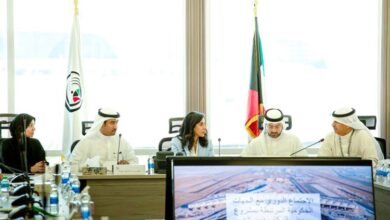Kuwait advances 22 places in the Corruption Perceptions Index

The head of the Anti-Corruption Public Authority (Nazaha) and the head of the committee, Abdulaziz Al-Ibrahim, said today, Sunday, that the committee has issued, since its launch in 2019, legislation on the right to access information, the law preventing conflicts of interest, its executive regulations, and the amendment to some provisions of the Penal Code to extend the scope of criminal liability to include legal persons in corruption crimes.
Al-Ibrahim pointed out the issuance of Law No. (120) of 2023 regarding the election of members of the National Assembly (establishing the High Electoral Commission) and that 83 percent of the national strategy initiatives have reached the stage of completing most of the work and the stage of final application and evaluation.
He stated that among the achievements is also the strengthening of cooperation with many partners in the fight against corruption at the national, regional and international levels, especially with civil society institutions and associations and oversight bodies.
The Supreme Committee for Leadership and Coordination of the Kuwait Strategy to Promote Integrity and Anti-Corruption announced that the ranking of the State of Kuwait has improved by 22 places on the Corruption Perceptions Index issued by Transparency International since the launch of the strategy, as its ranking was 85 in 2019 and became 63 in 2023 out of 180 countries.
He stated that the committee, whose membership includes 19 leaders representing the parties concerned with implementing the strategy, in addition to representatives of the Chamber of Commerce and Industry and civil society, viewed a presentation by the Planning and Follow-up Office in (Nazaha) in this regard.
Al-Ibrahim explained that the presentation included a review of the most prominent achievements through the strategy initiatives, the completion rates of the initiatives and their compatibility with the planned timetable. The members also discussed the most prominent challenges experienced during the implementation phase, and ways to overcome them to ensure the implementation of the initiatives in an optimal manner.
He stated that the committee decided at its meeting to extend the implementation period of the strategy, stressing the need to redouble efforts to achieve optimal implementation of this strategy, which derives its importance from its connection to the implementation of the obligations of the State of Kuwait in the United Nations Convention against Corruption and its role in improving the performance of the State of Kuwait in international indicators.













